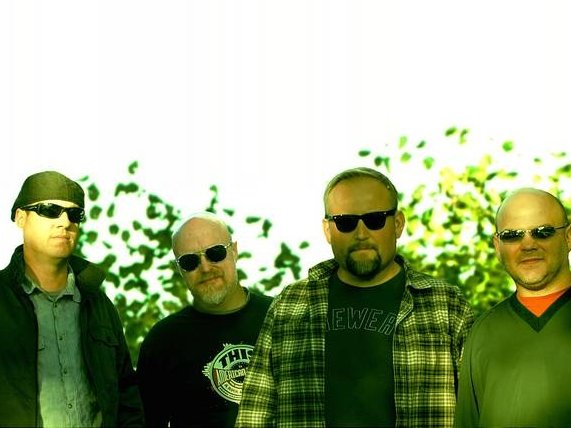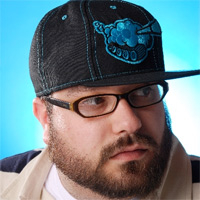Each year a new crop of kids embark on their freshman year of their college experience, while those who have left college try to navigate the waters of life to find safe harbor in a job or some sort of career path.
A good portion of these young adults are musicians that dream about starting that one band that will gain them the opportunity to achieve local, regional and even worldwide acclaim.
Some will leave behind their rock star dreams after college is done and society tells them it's "time to grow up." Others will continue to play simply out of their love for playing, which is far more pure than wishing for some essence of cool achieved by a stage presence.
Jim Dier and his band mates in R. Mutt now fall into the latter category. They've continued to make music because it's what they love to do and not because they're trying to reach back to their college days, the days when they formed R. Mutt and began their journey together two decades ago.
With a new album called "Leash on Life" out, I spoke with Jim Dier about R. Mutt and their path to the new record.
OnMilwaukee.com: There's a little Bruce Springsteen swagger to your voice. Is he an influence on you and your band at all?
Jim Dier: I grew up outside of Chicago and spent a lot of time seeing punk bands at the Metro: Suicidal Tendencies, Black Flag, Naked Raygun; Bruce was what all the jocks listened to. I was never into him at all. Sometime after I turned 30 I started falling in with bands like Son Volt, Slobberbone and Lucero and eventually traced their American music roots back to Springsteen and really became a fan. Lyrically and style-wise there are some songs on this disk that are clearly influenced by him.
OMC: How did you come up with R. Mutt as the name for your band?
JD: The name comes from a pseudonym Marcel Duchamp signed a sculpture with prior to entering it into a 1917 art expo. The piece he entered was just a urinal signed R. Mutt. The thing we liked was the concept of found art or taking something that exists in one form and presenting it in a different one.
For years within the band we joked about it being one of the worst names ever, then we were at a Firehose show and after sound check Mike Watt comes up to (one of us wearing an R. Mutt shirt) and asked, "Why the shirt?"
"It's our band name."
To which he says, "That's cool. That is really cool. You guys better be good."
Since then, it is tough to argue with a Mike Watt-approved name.
OMC: How did this collection of musicians come together to form R. Mutt?
JD: Originally Paul (drums) lived at UWM with Mike Bellante (former guitarist) and when they decided to start a band Paul said he had some friends he had known since junior high school in Illinois. I was at MU at the time and (guitarist) Ron was at Madison. So we started in Milwaukee with three Illinois transplants and the band wound up keeping us all here after college. During rehearsals for this new album Mike departed for good and Dan Power stepped in to replace him. We had known Dan from college when his band and ours used to split bills.
OMC: What was the song-writing process like for the new album?
JD: In large part the songs come in played by one of us on acoustic and we play around a bit before plugging in and figuring out a proper electric arrangement. Paul tends to concentrate most on lyrics while Ron and I tend to bring in chords changes and melody. Arrangement is a full on team project.
OMC: What's up with the heartbreak in the lyrics?
JD: It is funny to hear that. We think of the album as having very upbeat themes, like the good that comes after bad or the discovery that comes from reflection after something tragic. We all lead pretty simple, happy lives, so the heartbreak must be an old undercurrent coming back to haunt us or maybe a reflection on what we have been through to get where we are.
OMC: The title of your album is "Leash On Life." Tell me the story behind that.
JD: When we were wrapping this record someone forwarded us this great picture of the old Avalanche Super Bar that used to sit adjacent Marquette's campus and we decided we really wanted to use it. Before it was torn down we were one of the few bands that they ever had play there. The title worked well with the picture for us. It is a bit of play on words representative of the overall feel for the album – overcoming adversity, taking control.
OMC: What is your ideal live show for R. Mutt like?
JD: A few years back it was all about bigger: bigger amps, bigger stage, bigger clubs. Maybe that was having rock star dreams. At the end of the night I did not know how much I enjoyed the show until I knew how we did at the door. More people meant better show. Today, the perfect show is closer to what the perfect shows were when we started. Tight performance followed by at least one person coming up saying this was the first time they saw us and they dug it, or someone who has known us for years coming up to say they loved some new song we played.
So I guess the perfect show is any show where we find a new fan or reconnect with an old one.
Born in Milwaukee and raised in the Milwaukee suburb of Brown Deer, Concordia University Wisconsin alumnus Poppe has spent the majority of his life in or around the city and county of Milwaukee.
As an advocate of Milwaukee's hip-hop community Poppe began popular local music blog Milwaukee UP in March 2010. Check out the archived entries here.
Though heavy on the hip-hop, Poppe writes about other genres of music and occasionally about food, culture or sports, and is always ready to show his pride in Milwaukee and Wisconsin.



